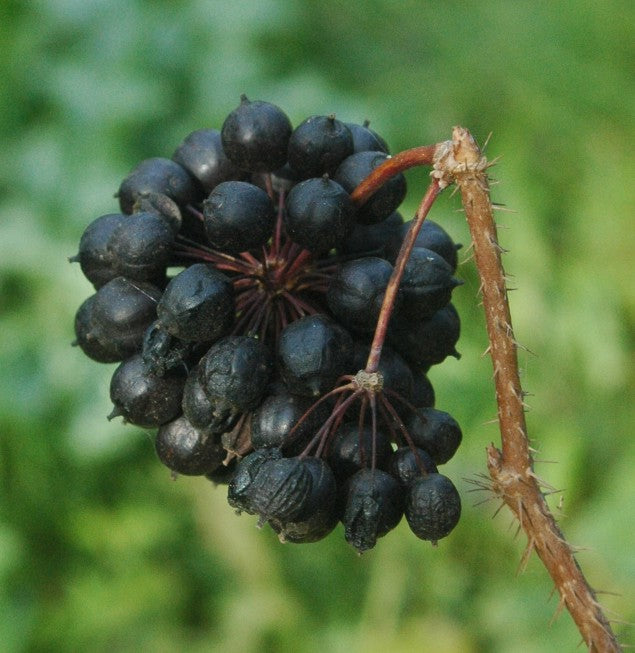With busy work schedules, unknown causes to health deficiencies due to synthetic products and thousands of diseases ready to spread, it gets hard not to stress out in one way or another.
In most cases of anxiety nowadays, people will turn to prescription medicine to help cope. According to a report in the 2010 Canadian Journal of Psychiatry, people who use anti-anxiety medication have a 36% increased mortality risk. Although medicine can provide temporary relief, there are many natural and possibly cheaper alternatives. One of those alternatives is tea.
 Photo credit: Wikipedia
Tealeaves boiled into water contain antioxidants and hydrating properties, half the caffeine of coffee and minimal diuretic effect. In parts of Asia, teas have been used for millennia to help with relaxation, in rituals (like spiritual and religious ceremonies), for nourishment and as healing medicine.
The following teas are all wonderful for helping your body process stress, relax and heal from the depletion that can occur as a result of long-term stressors.
Photo credit: Wikipedia
Tealeaves boiled into water contain antioxidants and hydrating properties, half the caffeine of coffee and minimal diuretic effect. In parts of Asia, teas have been used for millennia to help with relaxation, in rituals (like spiritual and religious ceremonies), for nourishment and as healing medicine.
The following teas are all wonderful for helping your body process stress, relax and heal from the depletion that can occur as a result of long-term stressors.
Passionflower
Photo credit: Pixabay
Passionflower (Passiflora incarnata) was first grown and used by Native Americans in the Southern United States, and has flavone chrysin, which has wonderful anti-anxiety benefits and can work similarly to the pharmaceutical drug oxazepam.
The plant can be used for sleep problems (insomnia), anxiety, asthma, ADHD, irregular heartbeat, high blood pressure and can even be applied to the skin for hemorrhoids, burns and swelling.
How to Dose Passionflower
Passionflower tea can be made by infusing 1 tablespoon of dried herbs in 1 cup of boiling water. Let the mixture steep for about 10 minutes. Drink the tea near bedtime to induce restful sleep. You can also use two droppers-full (about 50 drops) of tincture in warm water as a tea before bed.
Passionflower is generally safe and has not been found to interact adversely with other sedative drugs. To be on the safe side, it should not be combined with alcoholic beverages or prescription narcotics.
Who Should and Should Not Use Passionflower?
Passionflower works best for people with anxiety, who have a lot of thoughts and experience a lot of circular thinking or obsessive thoughts. It should not be used by pregnant or lactating women, or for children under 6 months old.
 Photo credit: Wikipedia
An herbal medicine has grown in Africa, the Mediterranean, and India, Ashwagandha (Withania somnifera) works as an adaptogen, substances that help you cope with stress. This class of herb helps the body fight stress by reducing the production of stress hormones that result in the fight-or-flight response. This adaptogenic quality can help the body relax and assist the body in staying strong.
Some healing effects it has are:
Photo credit: Wikipedia
An herbal medicine has grown in Africa, the Mediterranean, and India, Ashwagandha (Withania somnifera) works as an adaptogen, substances that help you cope with stress. This class of herb helps the body fight stress by reducing the production of stress hormones that result in the fight-or-flight response. This adaptogenic quality can help the body relax and assist the body in staying strong.
Some healing effects it has are:
Eleutherococcus (Siberian Ginseng)
Photo credit: Wikipedia
Eleutherococcus comes from Siberia, as well as from the northern regions of Korea, Japan, and China, and contains triterpenoid saponins, which are substances that have a beneficial effect on the body when it is stressed. The University of Maryland Medical Center website notes that Siberian ginseng tea improves blood circulation and enhances mental and physical prowess, as well as regulates the amount of stress experienced. This herb may also help the immune system fight common viruses like the rhinovirus, respiratory syncytial virus, and influenza.
Who Should Use Eleuthero?
The person who benefits the most from Siberian ginseng is a stressed person with a low-functioning immune system, who may have an unhealthy cardiovascular response from stress (type A personality) with higher blood pressures and heart rates. Eleuthero can be taken as a tea, or in even stronger forms like capsules or tinctures.
Hawthorne
Photo credit: Wikipedia
Originating in Europe and England, Hawthorne (Crataegus) has both a calming and nourishing effect on the cardiovascular system. It can have a gentle, relaxing effect on the system in people that have higher blood pressures due to a lot of stress hormones.
Hawthorne contains healthy plant chemicals called flavonoids that help keep the blood vessels strong. It may also balance total cholesterol, triglycerides and bad (LDL) cholesterol as well. Some studies also showed it may even help with congestive heart failure (CHF), a type of heart disease where the heart is working very poorly.
Who Should Take Hawthorne?
The most appropriate person would be someone who has demonstrated heart and cardiovascular problems and is under much stress. You can use it as a tea by itself or with other calming herbs like chamomile. Stronger versions of this herb can be dosed as a liquid tincture or as an extract, a thicker and more concentrated form.
A Stress-Free Conclusion
A great, natural and long-term approach to anxiety and stress is to sleep well, eat healthy whole foods, exercise and to lower your stressors when possible.
Natural, non-drug aids, Passionflower, Ashwagandha, Eleuthero and Hawthorne are safe and wonderful choices to help keep the body relaxed and balanced during this process.
 Photo credit: Wikipedia
Tealeaves boiled into water contain antioxidants and hydrating properties, half the caffeine of coffee and minimal diuretic effect. In parts of Asia, teas have been used for millennia to help with relaxation, in rituals (like spiritual and religious ceremonies), for nourishment and as healing medicine.
The following teas are all wonderful for helping your body process stress, relax and heal from the depletion that can occur as a result of long-term stressors.
Photo credit: Wikipedia
Tealeaves boiled into water contain antioxidants and hydrating properties, half the caffeine of coffee and minimal diuretic effect. In parts of Asia, teas have been used for millennia to help with relaxation, in rituals (like spiritual and religious ceremonies), for nourishment and as healing medicine.
The following teas are all wonderful for helping your body process stress, relax and heal from the depletion that can occur as a result of long-term stressors.
Passionflower

Photo credit: Pixabay
Passionflower (Passiflora incarnata) was first grown and used by Native Americans in the Southern United States, and has flavone chrysin, which has wonderful anti-anxiety benefits and can work similarly to the pharmaceutical drug oxazepam.
The plant can be used for sleep problems (insomnia), anxiety, asthma, ADHD, irregular heartbeat, high blood pressure and can even be applied to the skin for hemorrhoids, burns and swelling.
How to Dose Passionflower
Passionflower tea can be made by infusing 1 tablespoon of dried herbs in 1 cup of boiling water. Let the mixture steep for about 10 minutes. Drink the tea near bedtime to induce restful sleep. You can also use two droppers-full (about 50 drops) of tincture in warm water as a tea before bed.
Passionflower is generally safe and has not been found to interact adversely with other sedative drugs. To be on the safe side, it should not be combined with alcoholic beverages or prescription narcotics.
Who Should and Should Not Use Passionflower?
Passionflower works best for people with anxiety, who have a lot of thoughts and experience a lot of circular thinking or obsessive thoughts. It should not be used by pregnant or lactating women, or for children under 6 months old.
Ashwagandha
 Photo credit: Wikipedia
An herbal medicine has grown in Africa, the Mediterranean, and India, Ashwagandha (Withania somnifera) works as an adaptogen, substances that help you cope with stress. This class of herb helps the body fight stress by reducing the production of stress hormones that result in the fight-or-flight response. This adaptogenic quality can help the body relax and assist the body in staying strong.
Some healing effects it has are:
Photo credit: Wikipedia
An herbal medicine has grown in Africa, the Mediterranean, and India, Ashwagandha (Withania somnifera) works as an adaptogen, substances that help you cope with stress. This class of herb helps the body fight stress by reducing the production of stress hormones that result in the fight-or-flight response. This adaptogenic quality can help the body relax and assist the body in staying strong.
Some healing effects it has are:
- Protecting the immune system
- Helping combat the effects of stress
- Improves learning, memory and reaction time
- Reduces anxiety and depression without causing drowsiness
- Contribute to reducing brain-cell degeneration
- Stabilizes blood sugar
- Helps lower cholesterol
- Offers anti-inflammatory benefits
- Contains anti-malarial properties
- Enhances sexual potency for both men and women







